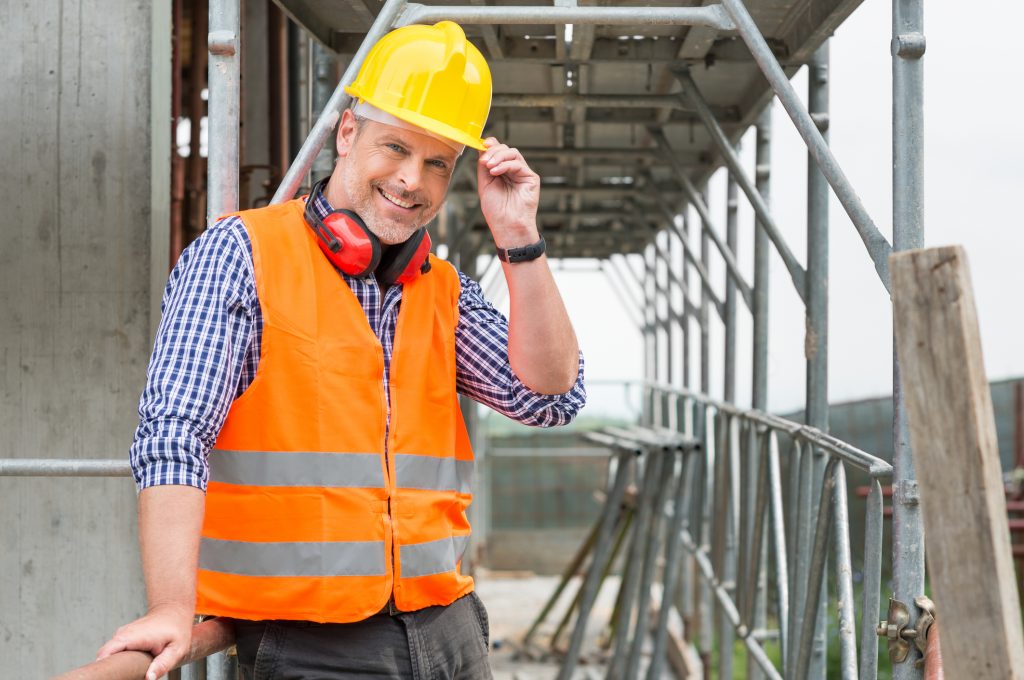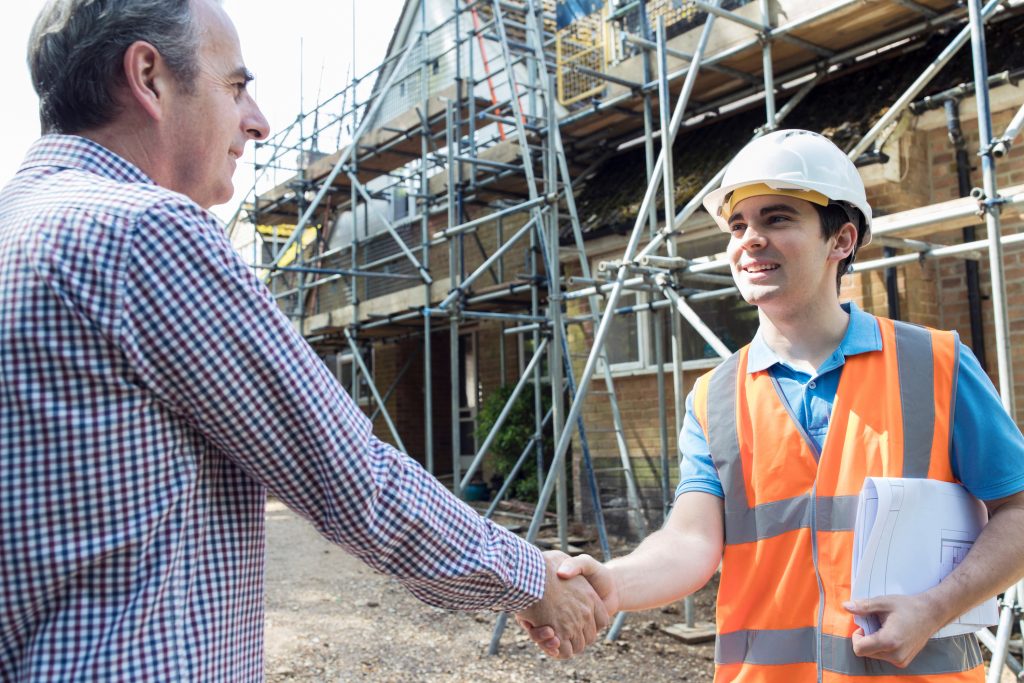Factsheet B1 - Finding a Builder
Once the design is complete and approved and you are ready to start the building work, you will need to choose a builder to carry out the work. This is probably one of the hardest decisions to make and it is important to prepare well in advance of the builder commencing. We have included below the main building considerations you will need to make at this stage.
1. Referral/Recommendation

The best method of choosing a builder in our experience is recommendation. Ask friends, neighbours, work colleagues and family if they have had building works carried out recently and if they were happy with the builder.
If you cannot find builders through recommendation, it is worth taking a look in your local area to see if you can find projects underway. Most homeowners will be happy to talk to you and let you know if they would use the builder again. It also gives you a chance to see some of their work and how organised the project is – i.e. if the site looks tidy and well run, the chances are the builder is organised and knows what they are doing.
Generally, it is better to choose a builder who is based near you as they will have less distance to travel, can respond to issues faster and have a local reputation to maintain.
2. Trade Finding Sites/Research
There are many websites now that recommend builders and tradesmen and it is worth using these if you cannot find a builder through recommendation. Remember, however, that you should still take up references and visit previous work. Ideally ask if you can visit a project that they are currently working on as the builder’s workforce can change over a period of time and you need to know who is likely to be working on your own project.
Finally, check if they belong to any trade associations such as the Federation of Master Builders as this will give you an indication on their attitude and how they wish to project their business image to their customers.
3. Obtaining Quotations

It is a good idea to obtain at least three quotations for the work and although this will involve some repetition on your part, it will provide you with a good indication of a fair price.
It is extremely important to define the extent of the works to make sure you are obtaining quotations based on the same specification. In our view, many building disputes are caused by having poor documentation and no Specification of Works which identifies what is to be included in the quotation and can also be used as a contract document.
We would always recommend that you obtain a Specification of Work for most projects which includes details on electrics, plumbing and heating, doors and windows, etc. and is usually prepared by your designer.
A lot of this information is not required to obtain planning permission or building regulations approval but is essential to ensure there are no misunderstandings on the work content.
4. Comparing Quotations
Always ask the builder for a breakdown on their quotation so you can compare them with other quotes. These are generally summarised into different trades such as carpentry, plumbing, etc or you could ask them to break down the various heading items in the Specification of Works.
It is not uncommon to find a large difference between quotes and having a breakdown will help identify where the differences are.
Make sure quotations received include VAT as this can make a big difference to the bottom line. If the builder isn’t VAT registered, it is worth asking why as the turnover requirement is around £85,000 per annum before registration is compulsory. This is a relatively low figure for a 12 month period for a builder as many individual projects are above this amount.
Don’t be afraid to ask the builder for clarification on any items that you are uncertain about as they will generally be pleased to help.
5. Making Your Choice

Whilst most people will base their final decision on the best quotation, ultimately you may be happy to pay more for someone that you feel more comfortable with and you will be happy to work with.
You will also need to consider the builders availability and how long they have advised the work will take to complete.
Once you have made your choice, make sure that you have a formal agreement with the builder which is also covered in our Factsheet B2 – Building Contracts.
More Factsheets Coming Soon
Please let us know if you have any ideas for new factsheets as we are continually updating and adding information to this part of our website.

